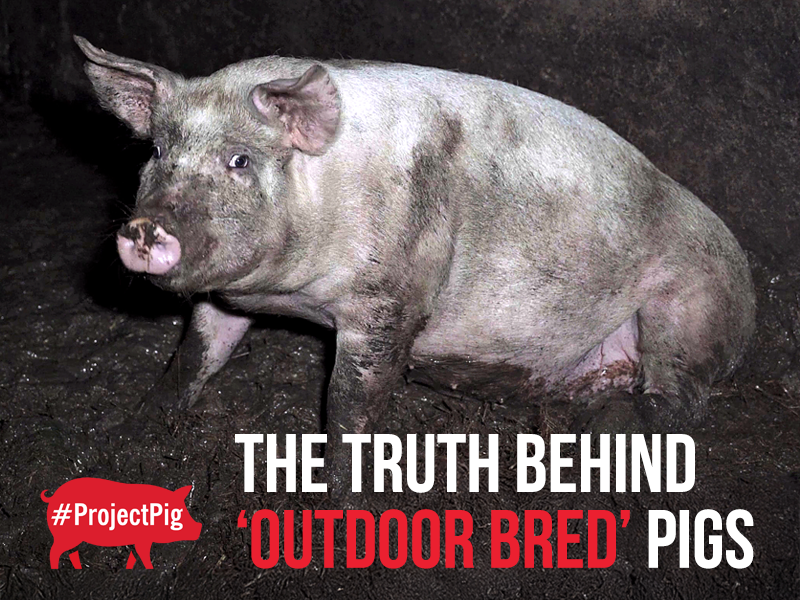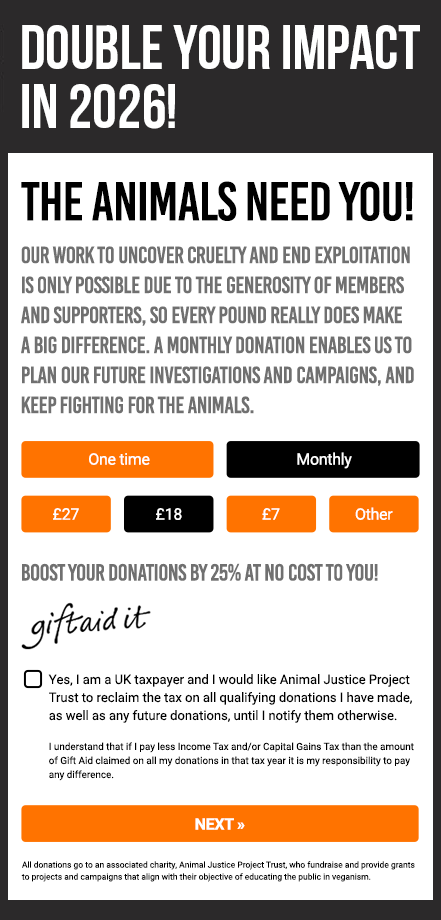
Respect All Life
It's week two of World Vegan Month!

We are into week two of World Vegan Month already! Over the past seven days, we have been sharing informative graphics across our social media platforms to help bring veganism back to the basics. Answering questions like 'What is veganism?' and 'How do I avoid animal use in clothing?', our shareable graphics have helped educate those interested in veganism and others who have never even come across it before.
This week we will be delving a little deeper into how animals are exploited for food, including farming statistics and common mutilations that they face on farms.
Let's take a look...
In 2021, over one billion animals were farmed and killed for food! This gigantic number excludes all of the fishes. molluscs and other animals ripped from our oceans. Although looking into the numbers of animals who were killed is disheartening and seems like an unfathomable number to try and counteract, it's vital that we stay up to date with the industry so that we can pick the appropriate targets for investigations and campaigns. It also helps us build on our knowledge when partaking in outreach. But there are also some positives!
2021 farming statistics in the UK
'Meat' chickens
1,1816,000,000
Cows
2,700,000
Pigs
10,918,000
Sheep & Lambs
13,409,000 – A decrease of 1,576,000 individuals
Turkeys
12,000,000 – A drop of 25%, down from 16 million in 2020
Ducks & Geese
10,000,000 – An almost 10% decrease, dropping by one million birds!
The following figures represent the numbers of cows and hens exploited by the respective industries in 2021:
Laying hens
40,568,000
Dairy cows
1,853,000 – A herd decrease of 3,000 animals
Common practices involving mutilations
It is standard practice on farms to mutilate animals and this is completely within the law. This includes 'higher welfare' or 'free-range' systems.
The following practices are very common, industry-wide and seen as the 'norm'...
1/ Disbudding
Taking place on goat and cow dairies, young animals are 'disbudded'. This is the removal of the horn bud; it prevents horns from growing. It is usually done through methods such as using a heated iron which burns and destroys the living horn cells. It is completely unnecessary and done for the sake of protecting farm workers and other animals, when cows or goats are in high-stress conditions and may act aggressively or frightened. Disbudding is well-known to cause chronic pain for many weeks and prevents natural behaviours.
Animal Justice Project has filmed the disbudding of tiny calves at Bath Soft Cheese, an organic dairy farm, as well as young kids who have been disbudded at a Delamere Dairy farm, during our undercover work.

2/ Debeaking
This painful and vile act is most commonly done to hens on egg farms and to turkeys. 'Debeaking' is the removal of the beak tip in farmed birds. It removes the sharp end of the beak to prevent birds from self-mutilating and harming each other due to the high stress and unnatural environment that they are forced to live in. Happy hens would rarely do this to one another but is common on egg and 'meat' farms. This is done throughout intensive, barn, free-range and organic systems. It is even accepted by charities like the British Hen Welfare Trust. It can leave birds in chronic pain and with disfigured faces, causing life-long pain and suffering.
3/ Artificial insemination
This practice is more commonly known. Artificial insemination is the act of enforcing a pregnancy onto an animal by means of impregnating equipment, rather than using a male animal. Many cows, goats and pigs are artificially inseminated on farms. With cows, for example, a worker forces their arm inside the rectum of the animal, guiding a metal rod through the vagina, inserted by their other hand. The semen, that is grotesquely-acquired from a bull, is then inserted. Both cow and bull are sexually-violated. Cows and goats are restrained in metal crushes to carry out the process.
Each and every mutilation that animals go through on farms is unnecessary and only for the profit of the farmers. It's speciesist and many of these cruel acts would never be allowed if they were done to companion animals.
Next week I will be bringing you information on how best to speak with friends and family as well as helping to debunk some common anti-vegan myths.
As always,
For the animals.

.png)


.png)







.webp)





.png)